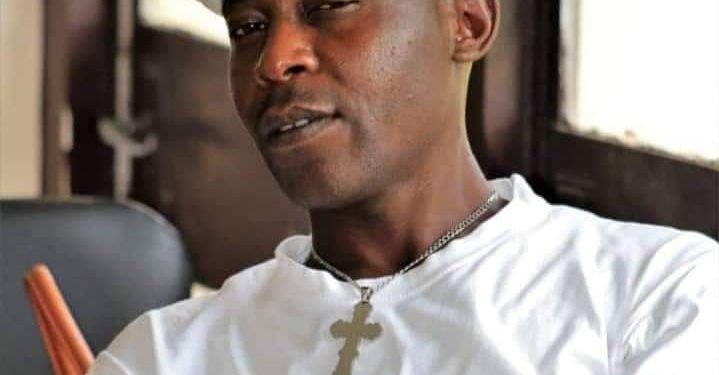Cameroonian music producer, actor, and film maker, Fonteh Mbih Collins, who was arbitrarily arrested by the military last week, has been freed after six days in incommunicado detention.
Reports say he was released around 1 a.m. today after he was brutalized and bundled out of his home in Buea on September 28 by officers working with Securite Militaire (SEMIL).
“I sincerely thank you all for all you’ve done for me,” Mbih Collins, who is fondly called Grand Stallon, wrote on Facebook this morning.
“From the bottom of my heart, I’ll tell you all that you have been incredible and supportive during the trial. You all responded to the distress call in your numbers, and your thoughts and prayers have yielded so much,” he added.
His release follows pressure and advocacy from the Cameroonian public, including entertainers, who have been asking for his release.
Entertainers like popular singer Salatiel, filmmaker Nkeng Stephen, and actor Onyama Laura are among those who campaigned for his release over the week.
“Our prayers have been answered. He is back home to his family,” wrote Onyama Laura, who earlier prayed that God should “vindicate” Fonteh Mbih Collins.
Music and film producer, Dr Nkeng Stephen described Mbih Collins as a “father figure in the entertainment industry” in a message yesterday asking for his release.
“Because of this man I started producing music in 2007. Because of him I learnt how to be confident when holding the camera in 2011. Because of him i started editing my own videos,” Nkeng added.
Arbitrary arrest
SEMIL officers stormed the home of 52-year-old Mbih Collins in Buea about 10:30 p.m. on September 28 and forcefully arrested him after searching his house.
Fonteh Viking Odilia, his wife, said she was slapped severally by the officers who forcefully searched the house, claiming they were looking for her husband’s gun. She recounted the ordeal in a message posted by human rights lawyer Tamfu Richard.
She narrated that she and her children were “watching a movie. We heard a knock at the door, only for me to open the door. I saw a man pointing a gun at me and the rest of family members.
“With fear, I almost ran away. The unidentified gunmen slapped me several times.
The officers, who did not identify themselves, scattered the house, claiming they were searching for her husband’s gun.
“They found no gun but saw my husband’s work tools, so they requested that I call my husband to come home urgently, which I did,” she added.
Once at home, Mbi Collins was brutalized by the armed man, who kept insisting that he was in possession of a gun.
“After beating him for several minutes, they handcuffed him, tied his eyes, and took him away alongside our neighbor’s wife, who saw everything that happened and wanted to run,” Viking Odilia narrated.
She said the SEMIL officers also took away two laptops, a watch, a spoiled drone, and some of her husband’s work tools.
Recurrent abuses
It is not clear why the soldiers stormed Collins’ house at that time. However, this has been the normal mode of operation for police and military officers in the Anglophone Region of Cameroon.
MMI has reported several instances of arbitrary arrest and detention by Cameroonian police and soldiers working in the English-speaking regions.
Memories of the tragic death of a university student, Ngule Linus Fonteh, are still fresh in the minds of many Buea residents.
The final-year student of International Relations at the University of Buea died in detention a few hours after SEMIL officers arrested him and his roommate, Mboh Gires Akua, on March 15
Till date, the military has never accounted for Linus’ death. His roommate, Mboh Giress, was only released on July 7, four months later.
The Cameroon military conducted 214 cases of arbitrary arrest in the Anglophone Regions between January and June this year, reported the Centre for Human Rights and Democracy for Africa (CHRDA) in its mid-term report.
“These numbers could be high as we believed that hundreds of cases were unrecorded or unreported,” CHRDA said.
“The population of the NorthWest and South-West Regions have been witnessing violations of the right to fair trial on a daily basis. Some of the survivors have been released, while some are still in detention.”



